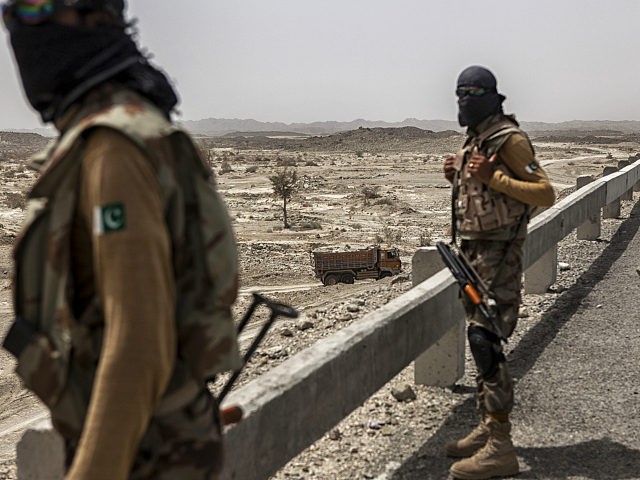China’s state-owned Global Times praised Beijing this week for convincing the United Nations-backed government of Libya to sign a memorandum of understanding (MOU) to join the Asian giant’s massive Belt and Road Initiative (BRI), claiming the project will fill the security vacuum left behind by the West.
Last Wednesday, the Libya Observer announced that the U.N.-brokered Government of National Accord (GNA), led by Prime Minister Fayez al-Sarraj, agreed to sign up for the multi-billion dollar BRI, also known as One Belt, One Road (OBOR), which is expected to establish a gigantic network of land and sea links from China to more than 60 countries in Asia, Europe, the Middle East, Africa, and even Latin America along one route.
Libyan Foreign Minister Mohamed Sayala signed the MOU memo with his Chinese counterpart, Wang Yi, the African news outlet reported.
It explained:
This came during a meeting held on Wednesday [July 11] in Beijing where the two sides discussed the return of Chinese companies to resume their stalled projects in Libya, according to a proposal that had been preliminarily agreed upon, in addition, the Chinese role in finding a peaceful solution to the Libyan crisis and its contribution to the reconstruction of Libya.
On Tuesday, the Global Times described China’s BRI activities in Libya as an effort to bring peace to the African nation in the wake of the U.S.-backed ouster of Libyan dictator Muammar Qaddafi in October 2011, which triggered the country’s descent into chaos.
The Chinese state-controlled outlet reported:
Seven years after ousting Libya’s strongman, the West has now abandoned its efforts on the ground to reconstruct this African country, leaving it wracked by civil war, terrorism, and political instability. When the chance arrives for it to develop a national economy and begin reconstruction, it is time to seize it.
It is against this backdrop that Libya signed a memorandum of understanding with China by which it will join the Belt and Road initiative envisioned by President Xi Jinping in 2013. Libya hopes that Chinese companies can return and resume their stalled projects and that China can help find a peaceful solution to the Libyan crisis and contribute to the reconstruction of the country.
Since the fall of Qaddafi, Libya has become a “fertile ground” for various jihadi groups, including the resurgent Islamic State (ISIS/ISIL) branch in the country, according to U.S. and local officials.
The Global Times acknowledged that Beijing’s BRI projects and Chinese citizens working on it may face the same Islamic terrorist threat in Libya that they are dealing with in Pakistan where security conditions have also deteriorated at the hands of jihadis.
China has urged its ally, Pakistan, to adopt measures that mirror those implemented by Beijing in Muslim-majority Xinjiang, the country’s largest province.
According to the U.S. State Department, China is oppressing the predominantly Muslim Uighur (or Uyghur) community in Xinjiang by forcing “hundreds of thousands” of members from the minority group accused of separatism and terrorism into so-called “re-education camps” also known as “mind-transformation centers.”
China has established a strong foothold in Africa, where it has expanded its military presence in recent years.
In March, Gen. Thomas Waldhauser, the top U.S. commander in Africa, told American lawmakers that the United States is maintaining surveillance over “Chinese encroachment and emergent military presence” in the African country of Djibouti, home to Beijing’s first overseas naval base.”
The U.S. military also deemed China’s activities in Latin America under the guise of BRI projects as a threat to the United States this year.
Trump administration officials have warned countries, particularly those in Latin America, against China’s “predatory” lending practices.
“The continued provision of financing and loans that appear to have ‘no strings attached’ provide ample opportunity for China to expand its influence over key regional partners and promote unfair business and labor practices,” Adm. Kurt Tidd, the top U.S. commander in most of Latin America, declared in February.

COMMENTS
Please let us know if you're having issues with commenting.